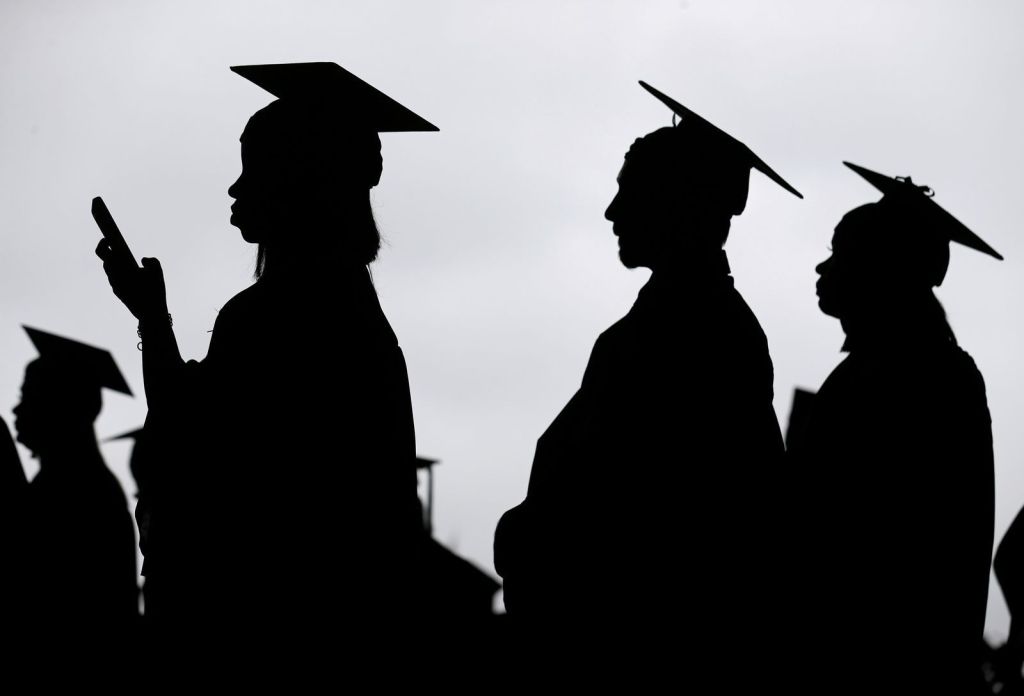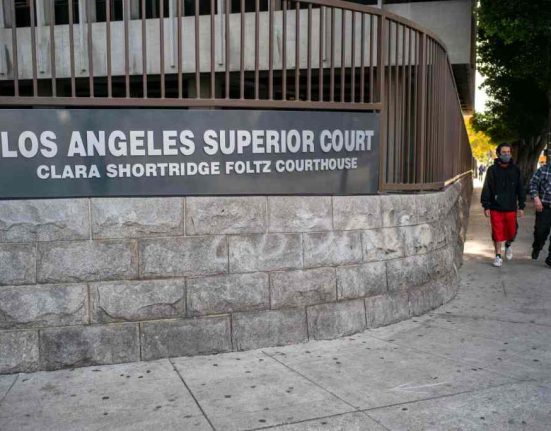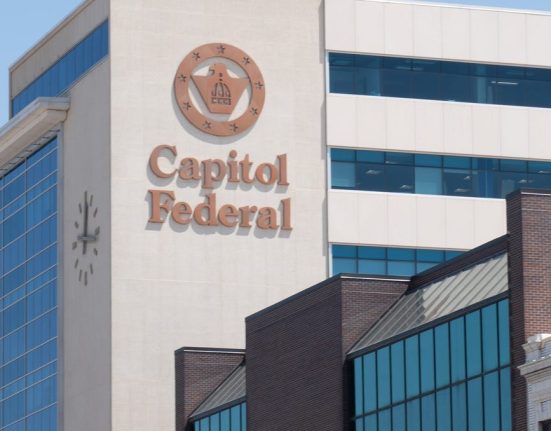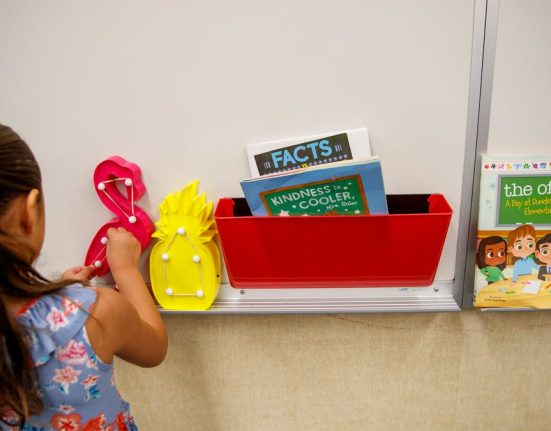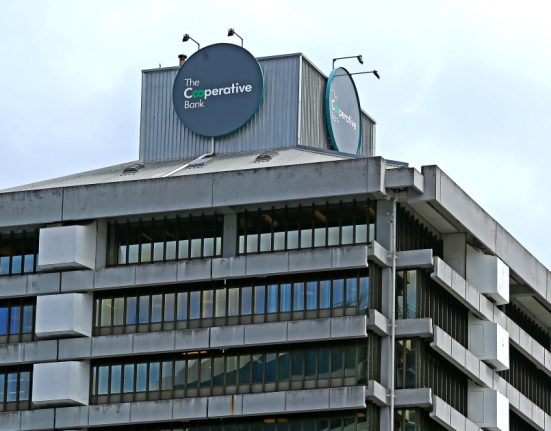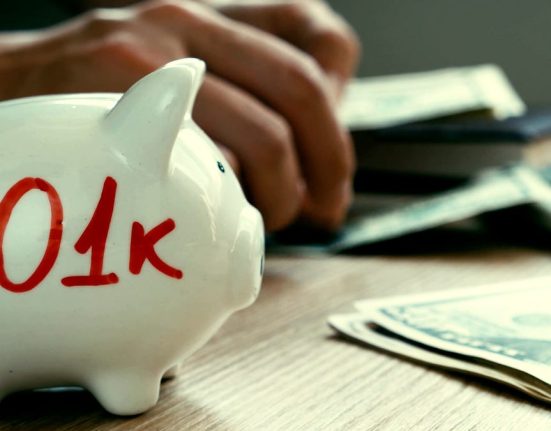The U.S. Department of Education’s plan to begin collecting federal student loans in default has caused anxiety among some Maryland graduates, while others say the time has come for them to accept fiscal responsibility.
The Department of Education will begin collecting federal student loans in default on May 5, having issued a warning that borrowers could be referred to debt collectors, face a garnishment of wages or deal with other mandates to pay back the funds.
Mercedez Evans, who works full-time as an administrative assistant at St. Paul’s School for Girls in Baltimore County, has outstanding private and federal loans from college. She has concerns about the potential impact of the debt collection as she balances her student debt with rent, groceries, car payments and other monthly expenses.
“This is extremely concerning, especially for young adults who are already struggling financially,” said Evans, who graduated from Spelman College in 2017. “With the rising cost of groceries, housing and other essentials, wage garnishment will only push people further into financial hardship. Instead of helping borrowers get back on their feet, this approach could trap them in a cycle of debt that may be inescapable.”
David Williams, president of the Taxpayers Protection Alliance, said the decision by the Education Department was long overdue, however.
“It’s time for them to honor that commitment and pay back this money,” Williams said. “When you look at government waste and look at government overspending and ways to bring down the deficit and debt, this is an easy thing to do because this is a responsibility these students took on when they went to school, and they need to honor those commitments. This needs to be something that happens immediately.”
The Education Department reports that 42.7 million borrowers owe more than $1.6 trillion in student debt. More than 5 million borrowers have not made a monthly payment in over 360 days and sit in default, and 4 million borrowers are in late-stage delinquency of 91 to 180 days, according to the department.
Borrowers who don’t make payments for nine months go into default, which can negatively impact their credit scores and can go to collections.
“American taxpayers will no longer be forced to serve as collateral for irresponsible student loan policies,” U.S. Secretary of Education Linda McMahon said in a statement. “The Biden Administration misled borrowers: the executive branch does not have the constitutional authority to wipe debt away, nor do the loan balances simply disappear. Hundreds of billions have already been transferred to taxpayers.
“Going forward, the Department of Education, in conjunction with the Department of Treasury, will shepherd the student loan program responsibly and according to the law, which means helping borrowers return to repayment — both for the sake of their own financial health and our nation’s economic outlook.”
The department will begin involuntary collection through the Treasury Department’s offset program, which withholds government payments, including tax refunds, federal salaries and other benefits, from people with past-due debts to the government, according to an April 21 announcement by the Trump administration. After a 30-day notice, the department also will begin garnishing wages for borrowers in default.
The Education Department is asking borrowers in default to contact the Default Resolution Group to make a monthly payment, enroll in an income-driven repayment plan or sign up for loan rehabilitation.
“I suspect a lot of these students have not explored any other options to pay back these loans,” Williams said. “Quite frankly, under the Biden administration, they’ve been given a free pass. Those days are over and it’s time for them to step up.”
The development is especially challenging for some students who will graduate next month.
“It’s concerning, I think, for most people, with there being a tough job market and graduates just trying to get on their feet,” Domenic Romeo, who will graduate from Syracuse University next month, wrote in an email. He wants to continue school to become a physician assistant.
“This means I will have to start paying loans from undergrad while taking on even more debt from PA school, and won’t even be able to work full time for a couple more years.”
No federal student loans have been referred for collection since March 2020, including those in default. Under former President Joe Biden, the Education Department tried multiple times to give broad forgiveness of student loans, only to be stopped by courts.
Higher education has inspired many political battles during the second Trump administration, such as over funding cuts, revoked visas for foreign students and scrutiny over universities’ accreditors.
Royce Burnett, dean at Morgan State University’s Earl G. Graves School of Business & Management, said many students affected by the Education Department news are first-generation college students. Now, there is the threat of students having to drop out because of these new financial challenges and debt they can’t afford.
“Education is designed to get you some advancement,” Burnett said. “Some of us have to go different routes. Quite frankly, loans are being part of it. Some people never think about the impact of these because it’s all the end game: ‘I am going to take this money. I am going to get a good job, and I will be able to pay the loans off.’
“Now, when they graduate, they have six months to get a job. If I don’t get a job, those loans are not going away. They are not going to be deferred.”
Burnett said it’s important to educate students about this scenario with the loans. The key is for students to be versatile to pursue multiple job opportunities. For example, an accounting major might take extra courses in finance to have more business skills.
“We have to train them to be a jack of all trades,” Burnett said.
Deanna Cyran, acting senior director of financial aid at Loyola University Maryland, said the loans decision by the Education Department won’t dramatically impact the school. Loyola offers several financial literacy events when students are about to graduate to discuss strategies for paying back loans or attending graduate school.
“We really hands-on with students when they are getting ready to graduate,” Cyran said. “We are just going to continue to do those steps to make sure they have all the information they need.”
Cyran doesn’t believe the change will impact enrollment.
“I think making sure they are educated about what the financial aid is from the beginning, and that is what we try to do, has helped them,” she said. “We try to make sure that we give them as much information as we can to make sure that they know what their loans and financial aid options are.”
The Associated Press contributed to this report. Have a news tip? Contact Todd Karpovich at tkarpovich@baltsun.com or on X as @ToddKarpovich
Originally Published:

